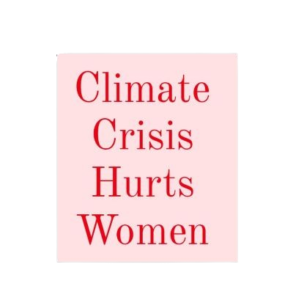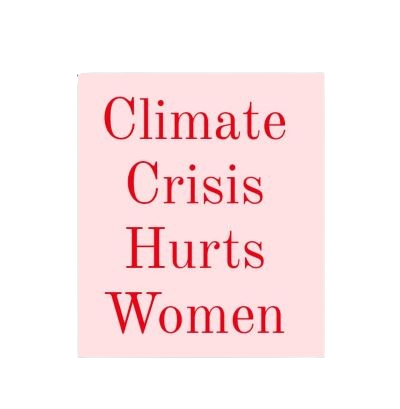Climate Crisis Hurts Women
Climate Crisis Hurts Women
Inflicting compounded hardships on women’s health, security, and human rights.

Women bear the brunt of climate change.
The climate crisis disproportionately affects women worldwide, exacerbating existing gender inequalities. Rising temperatures, extreme weather events, and changing precipitation patterns impact women’s livelihoods, health, and well-being.
In developing countries, women are often responsible for gathering water, fuel, and food, making them vulnerable to climate-related changes. Droughts and floods contaminate water sources, increasing women’s workload and exposure to waterborne diseases.
Climate change also threatens women’s economic security. In agriculture-dependent communities, women farmers face reduced crop yields, decreased incomes, and loss of livelihoods. In coastal areas, women’s fishing and aquaculture industries are devastated by ocean acidification and rising sea levels.
Furthermore, climate-related disasters increase women’s risk of gender-based violence, exploitation, and displacement. In refugee camps, women face inadequate sanitation, hygiene facilities, and protection from violence.
To address these issues, we must adopt a gender-sensitive approach to climate policy, prioritizing women’s empowerment, participation, and access to resources. This includes supporting women-led climate initiatives, promoting gender-responsive climate finance, and integrating gender equality into climate decision-making.
By recognizing the intersectionality of climate change and gender inequality, we can create a more just and equitable response to the climate crisis, ensuring that women are not left behind.
